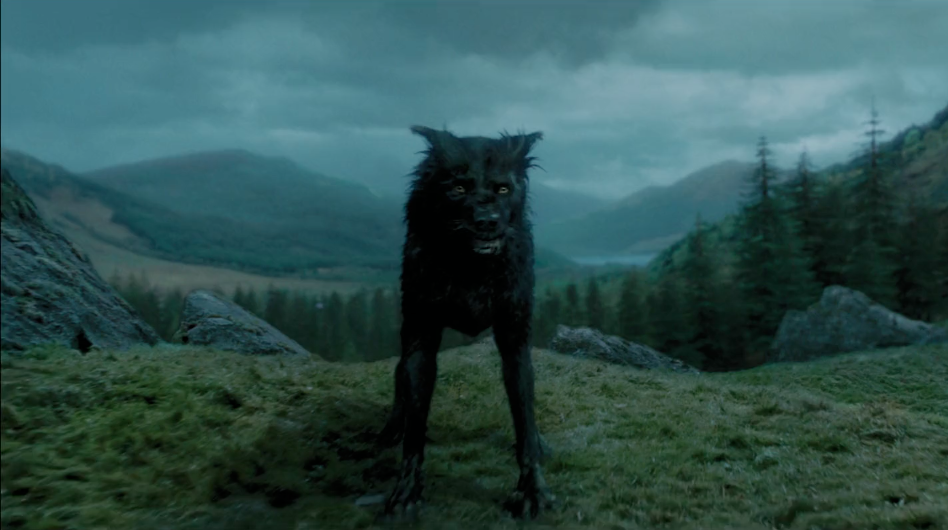10 Fictional Characters Who Deserve a Pardon (or Just Need a Hug)
Photo by Loudest Noise
Some of fiction’s greatest stories revolve around the anti-villains, the wrongfully accused, or the unfortunately misunderstood.
Today, we take a look at ten characters whose crimes ought to be excused by reasons of redemption-by-death, traumatic childhoods, or a shift in the moral event horizon.

Hester Prynne (The Scarlet Letter): A married woman has an affair that results in a child, but refuses to give up her lover, and is literally branded a slut for everyone to see. Sure, during the era the novel is set adultery is a stoning offense, but by today’s standards, Hester’s dalliance with Dimmesdale would only earn her a spot on Real Housewives of Boston.
When you take into account that her elderly husband sent her to live in the village by herself, the outcome is hardly surprising, or deserving of such punishment. Hester deserves a pardon, and if she lived today, she’d probably have a book deal.

Severus Snape (Harry Potter): The Potions master of Hogwarts School of Witchcraft and Wizardry makes the list as it remains unclear whether or not Severus Snape’s bravery is known after Harry defeats Voldemort. The only proof of Snape’s true loyalty lay in Dumbledore’s Pensieve, and probably didn’t survive the Battle of Hogwarts, so the world may never know that Snape was, in fact, the greatest triple agent the Wizarding World had ever seen. With that secret out, he surely deserves forgiveness for whatever crimes he might have committed while undercover.

Erik (The Phantom of the Opera): He kidnaps a young, beautiful girl on more than one occasion and attempts to force her into marriage, often threatening to kill others if she refuses, but the man had hard life, was desperately lonely, and horribly disfigured, all of which led the musical genius to questionable sanity. Given than he allows Christine Daae to leave in the end and marry the man she really loves, his other, somewhat tyrannical actions can be excused. He only wanted a little affection.

Liam Neeson as Jean Valjean
Jean Valjean (Les Miserables): He stole one lousy loaf of bread and was hounded by the police for the rest of his life. All right, it’s a little more complicated than that, but the various punishments incurred over his lifetime definitely outweigh the crime. Valjean certainly learns from his mistakes and becomes a man of nobility and character, so all those escape attempts and theft charges can be wiped from his record, right?

Jackie Burns as Elphaba in Wicked
Elphaba (Wicked): To begin with, she’s green. Add in religious fanatic father, a mother who sleeps around, a crazy sister, and a world that doesn’t appreciate her talents – not to mention a lover with a wife and kids at home who manages to get himself killed – and you have a potion for disaster. It’s no wonder the Wicked Witch of the West finally loses it when some stupid little girl drops a house on her only remaining relative. As Gregory Maguire tells it, Elphaba only wants to improve the nightmare world she lives in, including championing Animal rights, and all it ever brings her is misery. She’s not wicked, she’s tortured.

Quasimodo (The Hunchback of Notre Dame): Considering the kind-hearted Quasimodo is reviled for his appearance (because people are bastards) and generally beaten down, his great crime could be swept under the heading of self-defense, or defense of others. When his father-figure Archdeacon Frollo lures the gypsy girl Esmeralda to her death, Quasimodo kills him – and then feels horrible about it. You can’t expect much emotional restraint from a man who’s lived his entire life as the freak in the bell tower.

Al Pacino as Shylock
Shylock (The Merchant of Venice): The money-lender’s greatest crime, of course, was being a Jew in Venice, something that would probably cause a lot less friction today. His desire for a pound of Antonio’s flesh (and revenge in general) can be forgiven when his circumstances are explored, particularly his daughter’s abandonment and, later, his forced conversion to Christianity which would have made him an outcast to the rest of his family in the Ghetto.

Frankenstein’s Monster (Frankenstein): Let’s face it: the guy is a reanimated corpse – no way that was ever going to end well. Then he’s abandoned by his creator, and wanders through the wilderness with no identity to speak of. Any wrong-doing on the part of the Creature should be placed on Frankenstein’s shoulders since he never should have played with the laws of nature in the first place.

John Malkovich as Lennie
Lennie Small (Of Mice and Men): Gentle giant Lennie is largely a victim of his era, as a mentally disabled man would probably fare better in today’s society, though that’s not always the case. There would certainly be better ways of dealing with him if he were to accidentally kill someone than shooting him in the back of the head, though. In better times he probably would have had a better life; he can certainly be forgiven for not knowing his own strength.
 S
S
Sissy Spacek as Carrie
Carrie White (Carrie): What happens in Chamberlain, Maine should be a lesson to us all about not tormenting the weird kids. After years of torture from her mother and her classmates, telekinetic Carrie snaps – and can anyone really blame her? Maybe she took her revenge scheme to extremes, but she probably wasn’t completely in control by the time she destroyed the town. Thanks for the warning, Carrie.

